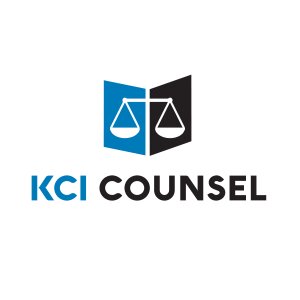Best Art & Cultural Property Law Lawyers in Vietnam
Share your needs with us, get contacted by law firms.
Free. Takes 2 min.
Or refine your search by selecting a city:
List of the best lawyers in Vietnam
![[DDC] DONG DU INTERNATIONAL ACCOUNTING, TAXES & LEGAL CONSULTING GROUP HCMC VIETNAM](https://lawzana.com/storage/firms/2690/17617306202399.jpg)
About Art & Cultural Property Law in Vietnam
Art & Cultural Property Law in Vietnam is a legal framework that governs the ownership, protection, and management of art and cultural heritage. This area of law aims to preserve the nation’s cultural identity, focusing on the protection and regulation of artifacts, artworks, traditional crafts, and historical sites. As Vietnam continues to integrate internationally, issues of art preservation, illegal trafficking of cultural property, and cultural exchange have gained prominence, necessitating a robust legal approach.
Why You May Need a Lawyer
There are several scenarios where individuals or organizations may need legal assistance in the field of Art & Cultural Property Law in Vietnam:
- Conflicts over the ownership and restitution of art and cultural artifacts.
- Legal guidance on compliance with local and international regulations regarding the export or import of cultural goods.
- Negotiation and drafting of contracts for art transactions, exhibitions, or loans.
- Protection of intellectual property rights for artists and cultural practitioners.
- Assistance in cases involving the illicit trafficking and smuggling of cultural property.
- Consultation on government policies related to heritage conservation.
Local Laws Overview
Vietnam’s approach to Art & Cultural Property Law includes several key components:
- The Cultural Heritage Law (2001, amended 2009) which provides the basis for heritage preservation, regulating archaeological activities, and museum governance.
- Intellectual Property Law which offers protections for creators of art and culture, including issues related to copyright and trademarks.
- Regulations on the export and import of cultural property to combat illegal trafficking.
- Various decrees and circulars by the Ministry of Culture, Sports and Tourism that provide detailed guidance on art exhibitions, auctions, and cultural exchanges.
Frequently Asked Questions
What is considered cultural property in Vietnam?
Cultural property in Vietnam encompasses tangible artifacts such as historical relics, monuments, artworks, and intangible cultural heritage like traditional music, dance, and festivals.
How does Vietnam protect its cultural heritage?
The Cultural Heritage Law mandates the preservation and promotion of cultural heritage through various measures, including registration, conservation, and restoration efforts.
Can cultural property be exported from Vietnam?
Certain cultural properties are restricted from export. Only items with the appropriate permits, often from the Ministry of Culture, Sports, and Tourism, can be legally exported.
What should I do if I find an artifact in Vietnam?
If you discover an artifact, you should report it to local authorities or the cultural heritage management agencies to ensure it is properly evaluated and preserved.
How are disputes over art ownership resolved?
Disputes are typically resolved through negotiation, mediation, or arbitration, with litigation being an option if other methods fail. Expert legal advice can help navigate these disputes.
Do I need permission to organize an art exhibition in Vietnam?
Yes, organizing an art exhibition in Vietnam requires permission from cultural authorities, especially if it involves foreign artworks or international cooperation.
What are the penalties for illegally trading cultural property?
Penalties can include fines, imprisonment, and confiscation of illegally traded items, along with potential international sanctions or consequences.
Are there any incentives for preserving cultural heritage in Vietnam?
The government offers various incentives for the preservation of cultural heritage, including grants, tax benefits, and recognition awards.
Can I claim ownership of a cultural site?
Ownership and management of cultural sites are typically under government control, though private individuals may own adjacent properties under specific regulations.
Is the protection of intellectual property related to cultural works enforced?
Yes, Vietnam enforces intellectual property rights rigorously, with protections for artists and cultural practitioners to safeguard their creations from infringement.
Additional Resources
For those seeking further information or assistance, consider reaching out to the following:
- The Ministry of Culture, Sports, and Tourism for regulations and policies.
- The Vietnam National Administration of Cultural Heritage for guidance on heritage protection.
- Vietnam’s National Office of Intellectual Property for intellectual property matters.
- Local legal firms specializing in cultural property law for expert legal advice.
Next Steps
If you require legal assistance in the field of Art & Cultural Property Law in Vietnam:
- Identify the specific issue or area where you need legal guidance.
- Research and contact local law firms or legal experts specializing in art and cultural property law.
- Prepare relevant documents and information related to your case to facilitate legal consultation.
- Attend consultations to discuss your situation and explore available legal options.
- Follow the legal advice or actions recommended by your lawyer to address your needs effectively.
Lawzana helps you find the best lawyers and law firms in Vietnam through a curated and pre-screened list of qualified legal professionals. Our platform offers rankings and detailed profiles of attorneys and law firms, allowing you to compare based on practice areas, including Art & Cultural Property Law, experience, and client feedback.
Each profile includes a description of the firm's areas of practice, client reviews, team members and partners, year of establishment, spoken languages, office locations, contact information, social media presence, and any published articles or resources. Most firms on our platform speak English and are experienced in both local and international legal matters.
Get a quote from top-rated law firms in Vietnam — quickly, securely, and without unnecessary hassle.
Disclaimer:
The information provided on this page is for general informational purposes only and does not constitute legal advice. While we strive to ensure the accuracy and relevance of the content, legal information may change over time, and interpretations of the law can vary. You should always consult with a qualified legal professional for advice specific to your situation.
We disclaim all liability for actions taken or not taken based on the content of this page. If you believe any information is incorrect or outdated, please contact us, and we will review and update it where appropriate.
Browse art & cultural property law law firms by city in Vietnam
Refine your search by selecting a city.















